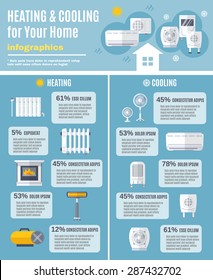Checking Out The Environmental Advantages Of Warm Pumps - A Sustainable Home Heating Remedy
Checking Out The Environmental Advantages Of Warm Pumps - A Sustainable Home Heating Remedy
Blog Article
Authored By-Glass Borup
In a period where sustainability and power efficiency are vital, lots of companies look for environment-friendly home heating options. One such remedy is the heatpump.
A heatpump extracts the heat in its surroundings and pumps it right into your home, resulting in one of one of the most effective environmentally friendly main heating unit around. This procedure also creates no greenhouse gas exhausts, making it a highly lasting modern technology.
Energy Performance
Heat pumps are extremely energy effective and need little maintenance. They use less electricity than other heating unit and are without a doubt one of the most environmentally friendly. They function well with rooftop solar and can commonly pay for themselves in utility cost savings alone.
They can also supply cooling, which is wonderful for garage workshops, attic hangouts and benefit areas, and home additions without expanding the existing ductwork. They can also be utilized for retrofits in existing homes with hydronic (water-based) distribution systems such as low temperature radiators or radiant floorings.
Look for versions with SEER and HSPF scores that fulfill or exceed copyright's minimum requirements, in addition to the requirements in your area. Greater rankings suggest higher effectiveness, which saves you money in the future and decreases your carbon impact. You may even qualify for rebates and incentives! The most effective units are those with a ground warm exchanger for added effectiveness. These devices can soak up thermal power from the ground throughout the wintertime and extract it in the summer season.
Minimized Greenhouse Gas Emissions
Heatpump work on power and basically transfer warm from the air, also when it's chilly exterior. They have the ability to remove the totally free warm trapped in air bits and relocate them inside, decreasing moisture while doing so.
Contrasted to gas heaters, modern heat pumps utilize less than one kilowatt of electricity per kilowatt of home heating power they produce. This makes them the most power reliable home heating choice available with a COP (Coefficient of Performance) of 4 or more. By lowering the demand for nonrenewable fuel sources, heat pumps help reduce greenhouse gas discharges and reduce other significant air toxins.
Building decarbonization is a global vital, and the cooling and heating sector is an essential chauffeur of that procedure. Whether it's real estate investors making internet zero dedications, plan manufacturers establishing discharges restrictions, or tenants requiring greener spaces, electrical heat pumps are being identified as a necessary solution. They are a cost-effective method to decrease carbon emissions by removing the demand for nonrenewable fuel sources in buildings.
Flexibility
Heatpump can be used in numerous types of homes and structures-- with or without ducts. They work with hot-water radiators, air-conditioning and programmable thermostats. simply click the following site can change heaters or be mounted in new homes. They can run on photovoltaic panels, geothermal systems and even area heating sources like wastewater.
https://www.prunderground.com/if-youre-looking-for-top-notch-hvac-services-in-central-point-or-my-advance-air-is-the-way-to-go/00267178/ at providing even more warmth per energy system. For instance, an air-source heatpump produces as much as 3 or even more heating systems from each power system it takes in.
Getting the most from your heat pump will certainly depend on your climate area and high quality of insulation. Look for designs with power STAR ratings and compare their SEER or HSPF specifications. In warmer environments, focus on SEER; in cooler areas, take into consideration a system with a greater HSPF ranking. Additionally, purchase air securing and insulation to decrease the load on your heatpump. That will enhance power efficiency and assist you reach your Internet Absolutely no objectives quicker.
Biomass Boilers
Biomass boilers utilize wood pellets, chips or logs to develop heat and hot water. They are an excellent selection for off-grid buildings or those who intend to leave the gas grid.
As a standalone heating unit, biomass can give enough power to maintain your home warm all year round without the normal warmth drop off of various other eco-friendly technologies. They can also be utilized together with photovoltaic panels to increase financial savings and gain from RHI settlements.
A downside of these systems is the ahead of time cost and normal gas shipments. Usually, pellets will need to be blown into a fuel store making use of a vacuum cleaner system or they can be by hand fed right into the boiler through a receptacle. Logs are generally self-sourced from neighboring timberland or purchased wholesale. In addition to this, they call for manual loading and may need cleansing regularly.